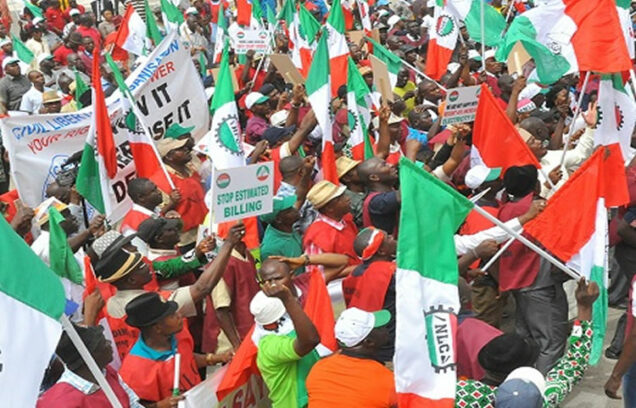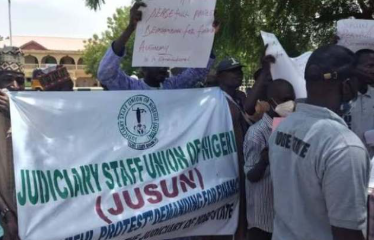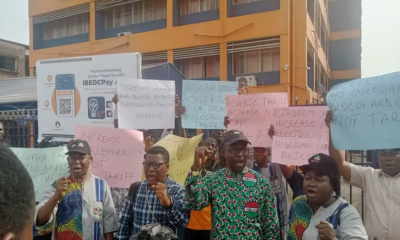The Nigeria Labour Congress (NLC) has declared a two-day warning strike over the impact of petrol subsidy removal on the masses.
The strike is scheduled to commence on Tuesday, September 5.
During his inaugural address on May 29, President Bola Tinubu announced that the petrol subsidy regime was over.
Tinubu defended his decision to scrap the petrol subsidy, which he said benefited a few elites and that the reforms would help boost the economy.
“In a little over two months, we have saved over a trillion naira that would have been squandered on the unproductive fuel subsidy which only benefited smugglers and fraudsters,” Tinubu said.
The president said he was aware of the hardship caused by removing the subsidy and was “monitoring the effects of the exchange rate and inflation on gasoline prices,” adding that he would intervene if and when necessary.
READ ALSO: NLC reveals next plan on protest after meeting with President Tinubu
The pronouncement immediately led to a hike in the pump price of petrol, a quadrupling of transportation costs in certain areas, and ballooning inflation across several market segments.
On August 2, the NLC and affiliate unions staged nationwide protests against the removal of the subsidy on petrol and the attendant hardship on Nigerians, after issuing a seven-day ultimatum to the federal government to reverse all “anti-poor” and “insensitive” policies.
After the protests, leaders of the labour unions met with President Tinubu at the State House in Abuja.
The president has however insisted that his economic reforms are bitter pills that the people must swallow at this time.
“We have gone through the past. I will not look back. The focus of my horse and my race remains forward-looking,” Tinubu told members of the board and management of the National Economic Summit Group (NESG) on Thursday.
The federal government has announced the distribution of palliatives to states in a bid to cushion the impact of the petrol subsidy removal policy on Nigerians.
The hardship and spiraling inflation are yet to abate, however.

 Entertainment5 days ago
Entertainment5 days ago
 Health1 week ago
Health1 week ago
 Health4 days ago
Health4 days ago
 Football1 week ago
Football1 week ago
 Football1 week ago
Football1 week ago
 Crime4 days ago
Crime4 days ago
 Crime1 week ago
Crime1 week ago
 Education6 days ago
Education6 days ago











